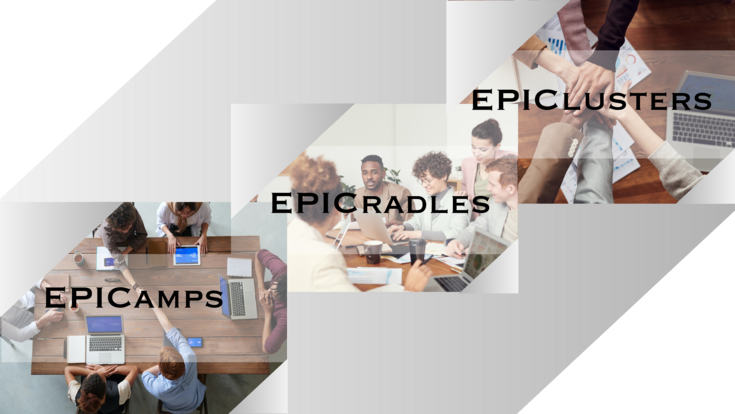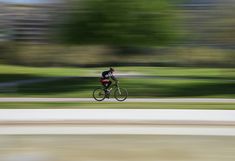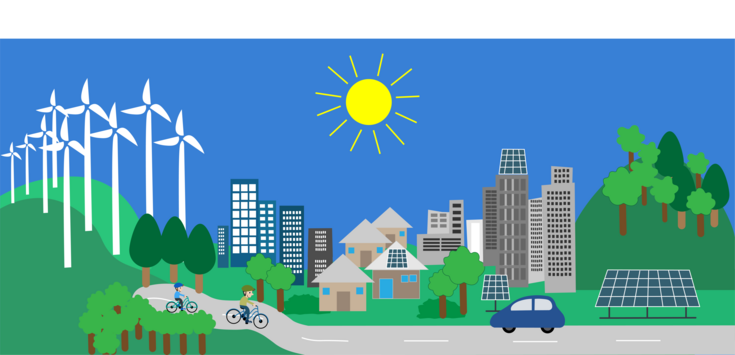EPICUR Research
Interdisciplinary research at 9 locations
Inter- and transdisciplinary research in three core areas of current societal challenges is the goal of EPICUR Research. Funded by Horizon 2020 of the European Commission, the project started in January 2021 with a three-year duration. Within the programme line "Science with and for Society" (SwafS), EPICUR Research is primarily aimed at early career researchers, who are interested in shaping a common research agenda for our nine partner universities.
Joint research agenda with inter- and transdisciplinary approach
Joint research with the EPICUR alliance is inspired by the “Six Transformations to achieve the SDGs”, the Green Deal, “Missions of Horizon Europe”, and the EU Skills Agenda. An inter- and transdisciplinary approach in three core areas (EPIChallenges) deal with sustainability (including climate change and energy), mobility, migration & identity and public health as the most relevant research agendas.
Interdisciplinary and transdisciplinary research is important to EPICUR. This means that at the core EPICUR describes the need to integrate not merely diverse data and information but also to reflect and combine methodology, tools, research approaches, techniques and theories from divergent disciplines. And eventually, reach beyond the walls of universities themselves to involve non-university partners and include even more diverse sources such as indigenous or practical knowledge.
EPIChallenges: The 3 research agendas of EPICUR Research
- Sustainability
- Mobility/Migration/Identity
- Public Health
EPICUR Pathway to Research
EPICUR Pathway to Research is a a three-step programme designed by EPICUR Research to support young scientists in their innovative, inter- and/or transdisciplinary research. EPICUR Research aims at transitioning the regional academic communities of the EPICUR partner universities into a bottom-up collaborative network empowering early career researchers in their science work. By initiating processes and building new networks for researchers in all their career stages, EPICUR will thereby form a new research community that crosses over disciplinary and national borders.
To advance this development, EPICUR Research established the "Early Career Researcher Board" in the spring of 2022 and BOKU voted two young researchers into the ECRB.

EPICamps > EPICradles > EPIClusters
EPICamps. The first step is the EPICamps, research camps for PhD students and Postdocs (among others). Between October of 2021 and May of 2022 five EPICamps were organised by the EPICUR partner universities. BOKU hosts the third and fifth EPICamp on different topics of sustainability.
Following the EPICamps, researchers in collaboration with external partners, will have an opportunity to apply for grants to augment their emerging research networks and transform research ideas into EPIClusters: collaborative, challenge-based research projects run by early career researchers.
Please note: Researchers who have not completed an EPICamp can still apply for fellowships!
EPICradles. The second step are EPICradles, hybrid research group projects with EPICUR funding and institutional/academic support. EPICradles take place for approximately three months, from May/June through mid-September of 2022. The closing event will be on 14/15 September at the University of Freiburg.
Physical stays are planned for June/July and August/September at the University of Freiburg and the partner universities within close geographical proximity (UHA Mulhouse, University of Strasbourg, KIT), depending on the needs and interests of the groups. Additional field trips may be taken.
Please note: Applications are due between 15 March and 15 April!
This will allow the groups to submit their project applications – if they wish to do so – for the EPIClusters.
EPIClusters. The third and final step are the EPIClusters.
EPICamps explained
EPICamps are (virtual) events aimed at young scientists from the EPICUR alliance with the goal of creating a space for exchange, collaboration and academic networking between scientists from different disciplines and fields.
Expanding the concepts of traditional scientific conferences and workshops, EPICamps will be open gatherings engendering new partnerships and serving as seedbeds for research ideas beyond the scopes of single disciplines or fields. They will feature various formats, ranging from short presentations and panel discussions to academic matchmaking events and interactive ad-hoc discussion rounds, from virtual posters and project exhibits to search/offer blackboards.
EPICamps will offer emerging scholars the opportunities to present their research, interests, and ideas as well as discover and meet with peers who complement and expand their work. To foster manifold exchanges, the EPICamps – in addition to thematic sessions – will also give room to researchers and non-university partners to connect over questions of methodology, tools, ethical queries and data management, didactics, science communication and other aspects of academic pursuits.
EPICUR seeks to foster the formation of research groups across disciplines and national borders, who address one of three societal challenges: sustainability, mobility/migration/identity, public health. Under the umbrella of these EPIChallenges, EPICUR will organize six EPICamps throughout 2021/22, each narrowing in on different aspects of these broad themes.
Research camps for young scientists
4th EPICamp "Hydrosphere"
4th EPICamp: March 23 - 24, 2022
"Hydrosphere: Challenges of preserving and using WATER (eco-)systems in the Anthropocene"
Addressing the hydrosphere, this EPICamp will look at water (eco-)systems impacted by both natural processes and human intervention. Water is equally a natural and social resource at the core of human existence which in turn has deeply shaped the waters that flow through the Earth. Taking an Anthropocence perspective, EPICUR Research invites early career researchers to engage in a fully interdisciplinary approach at this EPICamp.
Between March 23 and 24, 2022 the University of Freiburg will host the fourth virtual EPICamp and welcome early career reseachers of all 9 EPICUR partner universities.
The invitation for the EPICamp IV holds all the necessary details.
The registration period has already started and registration is open until February 15 (with contribution) and March 19 (without contribution)!
The research camp especially invites scholars from the emerging field of Environmental Humanities to look at sustainability issues through a historical, political, and cultural lens.
More details about EPICamp IV.
3rd EPICamp "Collective identities"
3rd EPICamp on 21/22 October, 2022
"Collective identities and/or European identities"
Organised by BOKU's French partner, UHA.
Registration with contribution until January 7 here!
Update January 2022: 3rd EPICamp has been moved to a new time slot between February 25 - 26, 2022!
Registration for Participation without contribution (except poster/mini presentation) is still open until February 20, 2022!
2nd EPICamp "Sustainability, Material Use and Climate Justice"
BOKU hosts 2nd EPICamp
BOKU is committed to sustainable development and will make "Sustainability" the topic of the second EPICamp.
In autumn 2021, BOKU and two EPICUR partners will invite selected researchers to a workshop lasting several days. Under the working title "Sustainability, Materials, Climate Justice", early career researchers from different scientific disciplines will meet and network along common research interests.
The application for participation will open at the end of September/early October. You will find regular updates here.
NEW: EPICamp II takes place on 2/3 December, 2021!
1st EPICamp "Mobility, Migration and Multilingualism"
1st EPICamp on 15/16 October, 2021
EPICradles explained
The EPICradles consist of two physical meeting phases (about two weeks each) connected through a virtual intermission, during which the groups are able to communicate and develop their ideas. In a closing event, participants will share their results and reflections on the EPICradle with the EPICUR alliance and the wider public. EPICUR Research gives support in the form of stipends (3.000 € per participant + 5.000 € group budget) and institutional support, such as access to the state–of–the–art research infrastructure available at the EPICUR partner institutions.
The fellowship. 3.000 € per participant + 5.000 € group budget.
When can I apply? 15 March – 15 April, 2022 here.
Where can I apply? This is the registration link for all applicants.
Who can apply? EPICradles are aimed mainly at early career researchers, who wish to develop interdisciplinary teams of researchers and to turn their research ideas into project proposals. Within each group, one or two applicants may be working at non-university or non-academic institutions provided that they can prove a sincere interest in pursuing research or research-relevant careers in the future. All potential applicants must be eligible and be able to spend 2×2 weeks in any of the EPICUR universities, and have an official affiliation with at least one partner university.
How can I apply? The application must be written in English and should not exceed 15 pages, including all the relevant documents and elements. The application must be submitted by a designated corresponding author for a group of 3-5 early career researchers. More details on EPICUR’s alliance website.
Phase I: Exploration & Team Building. Focusing on the exploration of their topics as well as on team building, this first two-week in-person meeting features expert talks, workshops, discussions, and co-working sessions. By the end of the first phase, groups will have developed a roadmap for the writing of their research projects/proposals.
Intermission: Virtual Co-Working & Meet-ups. Participants have access to virtual co-working spaces, where they receive support from EPICUR Research staff and established researchers. Additionally, EPICUR partners provide the participants with access to relevant online research infrastructures, thereby further fostering the exchange between universities.
Phase II: Co-Working & Finalization. Returning to the EPICradle host institution in Freiburg, participants finish their research project proposals and create output useful for their own professional and academic development. In addition, the groups have the opportunity to present and discuss their projects with experts and societal stakeholders.





